Teenage Boredom in R. Kikou Johnson's Night Fisher
Johnson’s story of Loren’s “lost” senior year, marked by drug use and criminality, shows a kid who isn’t bad but just looking for something to fill a void. With no personally-held goals, the influence of other people gives Loren something to do other than school and yard work.
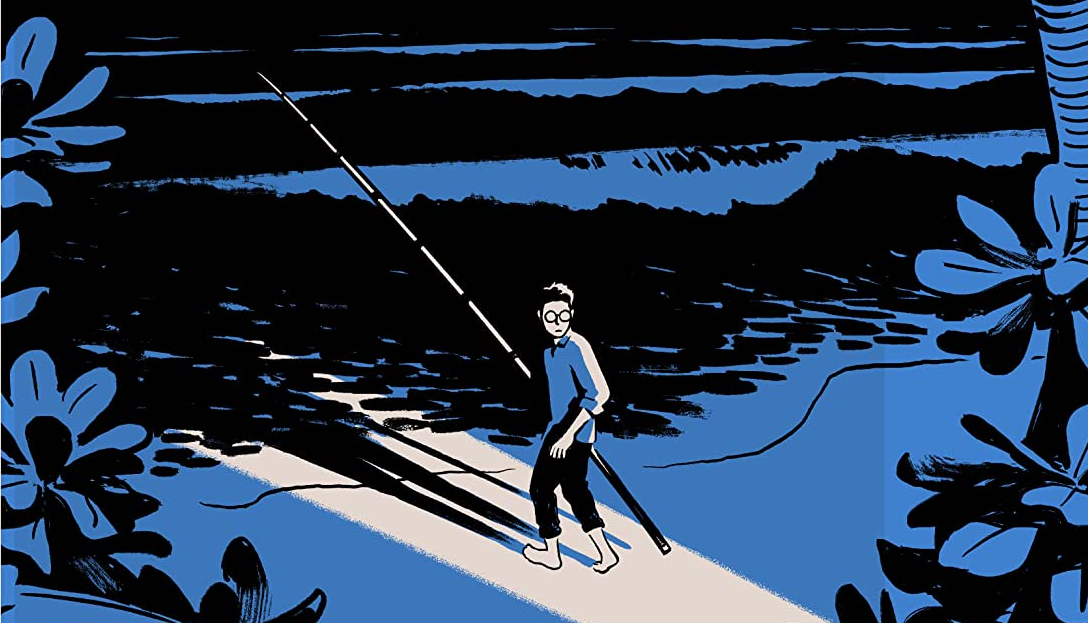
To most of us, the thought of living in Maui is like living in paradise; the sun, the beaches, the warmth, and the whole atmosphere of aloha that must be everywhere there. If we think about it, we’d probably conclude that this is a case of “the grass is always greener…” but it’s still nice to imagine that it’s the greenest paradise that we could think of. But for someone who lives there, who grew up there and has had to deal with it being the only place they know, they probably have to imagine that the grass is greener somewhere else, just like the rest of us. And then there are people like Loren in R. Kikuo Johnson’s Night Fisher, an outsider who moved with his father to Maui from Boston. In his last year at a fancy prep school, Loren is not a native of Hawaii but he’s not a tourist. He’s not an adult but he’s not a child. He lives in this perpetual transitory state where he feels like he’s always playing catch up with the other kids around him, especially his childhood best friend Shane.
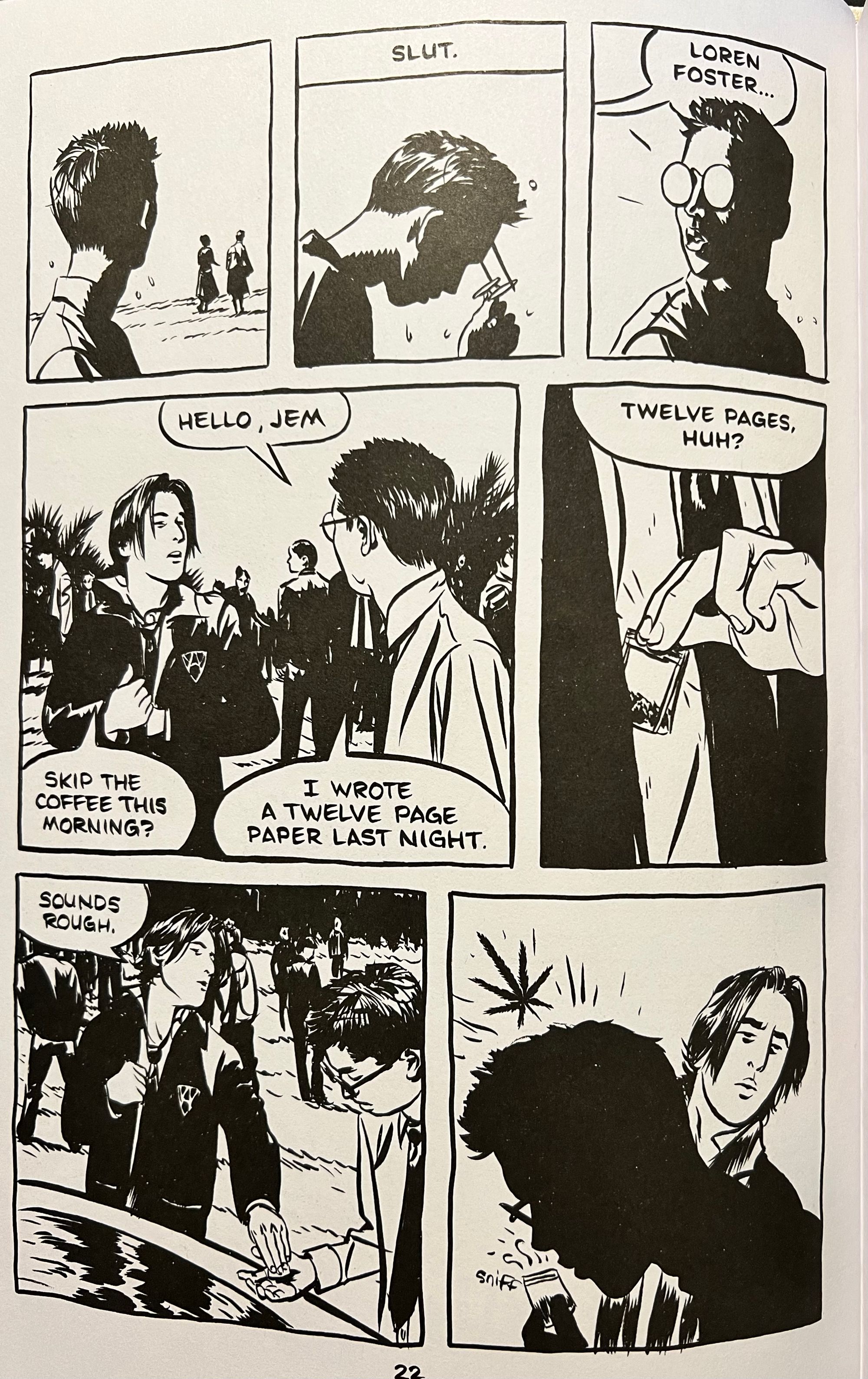
To say that Loren is lost implies that he has somewhere he should be. There are the high school kids who know what they want and then the kids who know what they should want, the college and education that they’re told are what should come next in their lives. Loren seems caught somewhere in between, wanting to escape a life he feels ignored by but with no real desire or ambition to sweep him to that next step. It doesn’t help that Shane has always been ahead of Loren that way, taking those steps and teenage rebellions well ahead of Loren. For Loren, it’s like he’s watching and having to learn second-hand what he should be doing with his life.
Johnson’s story of Loren’s “lost” senior year, marked by drug use and criminality, shows a kid who isn’t bad but just looking for something to fill a void. With no personally-held goals, the influence of Shane and other people (who are far more criminally-leaning) gives Loren something to do other than school and yard work. As shown here, Loren doesn’t take control of his life at any point, he just goes along with the flow and hopes that the flow works out for him. And eventually, that flow has him standing lookout at a construction site as his new drug buddies search for generators to steal so that they can sell them to buy more drugs. It’s a cycle that he falls into for no particular reason other than his momentum (or lack of it) just pulls him in that direction.
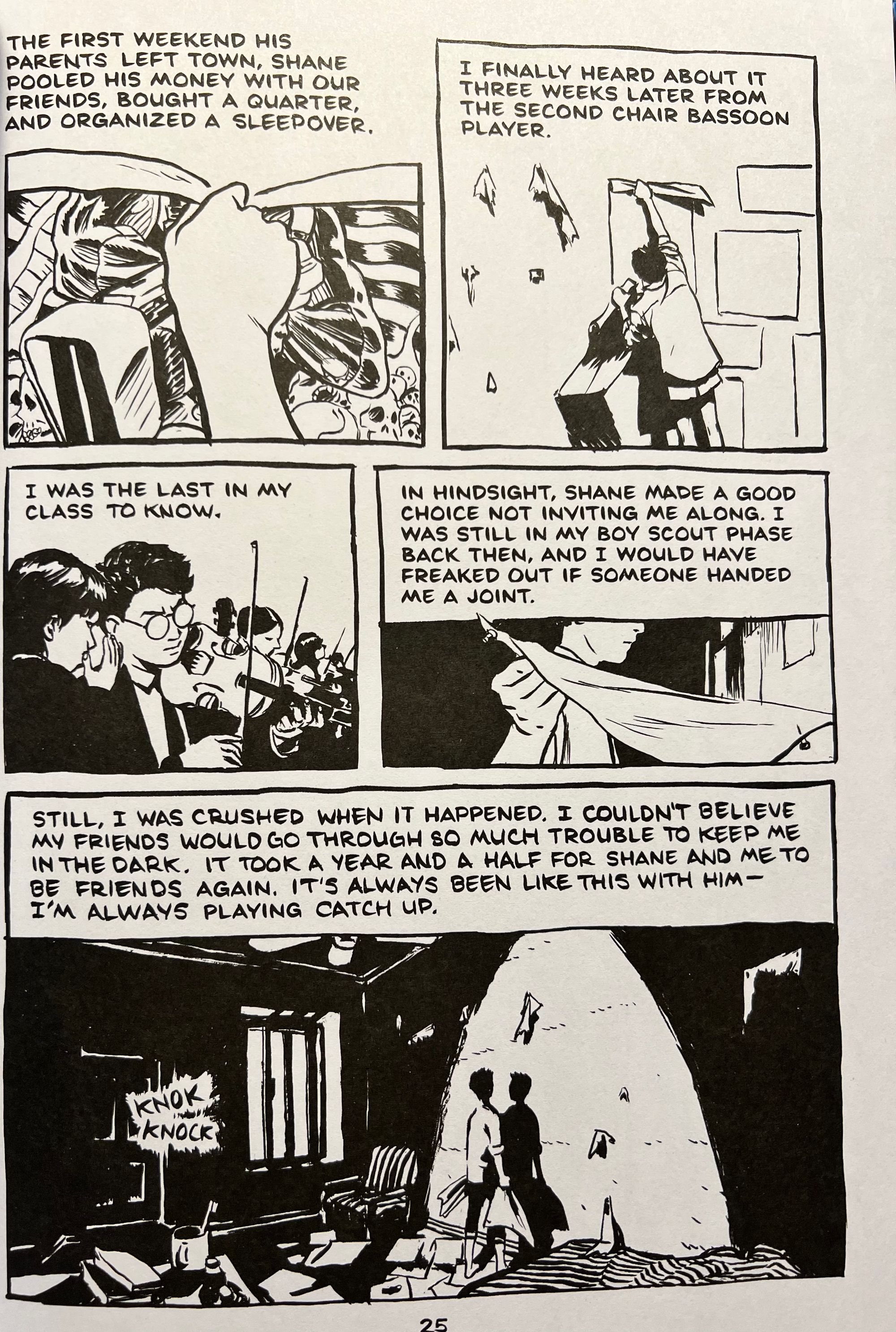
An ennui permeates nearly every page of Night Fisher. Johnson’s stark black-and-white artwork acts almost as a binary representation of Loren’s emotional state. It’s either on or off, black or white. There’s almost no middle ground to Loren or any of Johnson’s other characters. There’s just this state of being that comes down to just existing daily. School is a bit of a joke, Loren is a foreigner even though he’s gone to school with these kids for years. There’s got to be something more to each day, some reason to get out of bed that’s more than it’s just what you do. And that’s a key to a lot of teenage rebellion; it’s just a question of how that rebellion expresses itself.
It’s fascinating how Johnson builds a backstory for Loren without giving him much of one other than his father and he moved to Maui from Boston several years ago. His father’s a dentist who has trouble keeping the front yard vegetation under control but that’s almost all we know about Loren’s background. Mother or any other family? Why move to Hawaii? For a kid who can’t picture what his future could be, Loren doesn’t give us much of any insight into his past, beyond his time in prep school. He barely even recognizes this blindspot in his life, even when he finds his father depressingly sitting at the kitchen table, with a piece of paper in his hand. Loren brushes it off, eager to get out of the house and meet up with his accomplices. “Fishing” he answers when his dad asks if he’s going anywhere. He can’t get out of the house soon enough even though it’s obvious that his father just wants to talk. Left alone, his father continues to look at a home loan statement. Johnson’s artwork is just clear enough that we know what it is that it’s concerning for his father but not enough to know why.
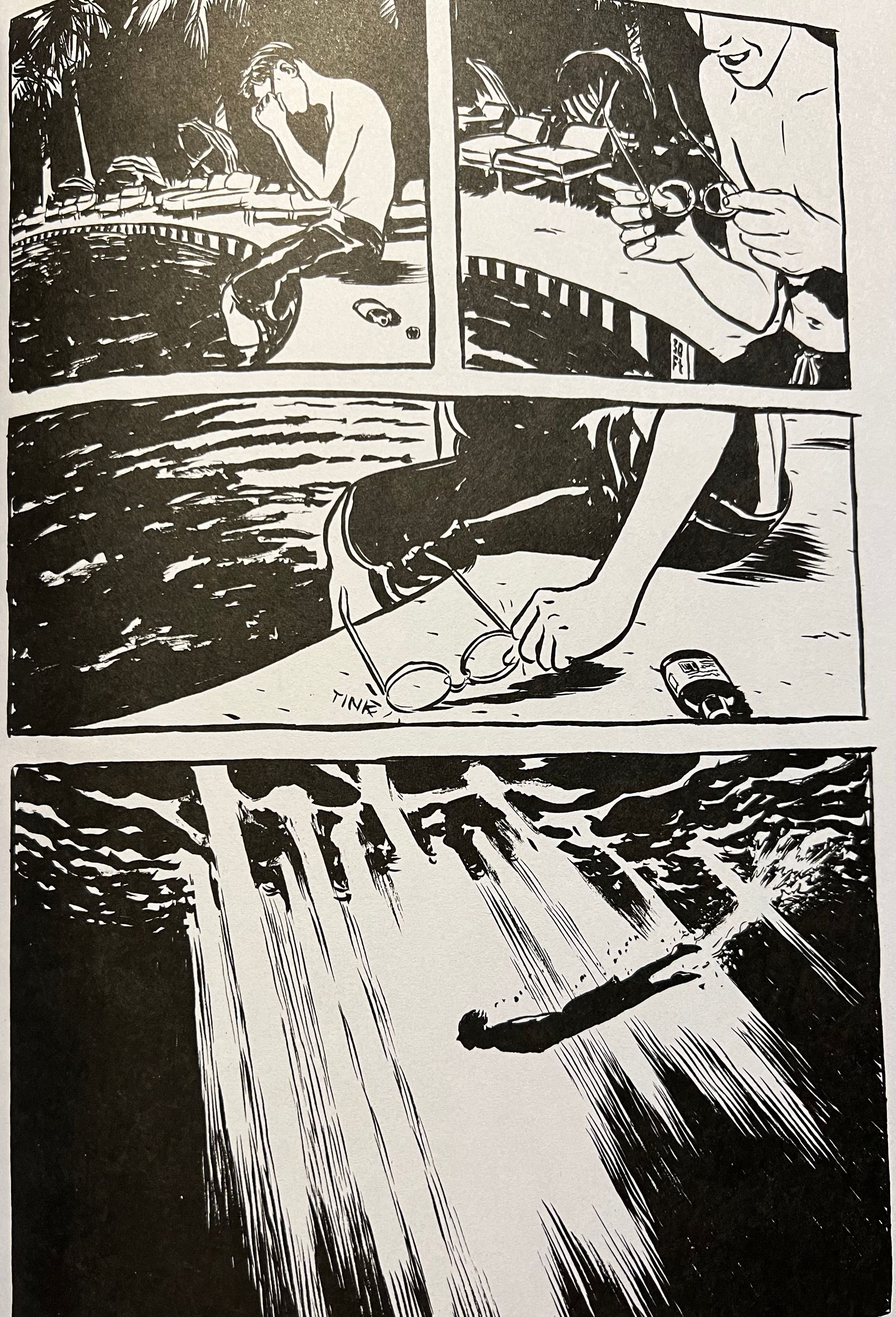
Loren’s oblivious disregard for his father or his past demonstrates the aimlessness that Loren is going through. He’s so wrapped up in his own high-school drama and selfishness that everything else becomes just noise in his life. Johnson gives us an insider view of Hawaii and it turns out it’s just largely another suburban environment, full of bored suburban kids. There are moments where Johnson shows us the wonders of Hawaii and the magic of youth, a strange unwanted innocence that wants to grow up too quickly, and the friendship and peace of fishing at night. These moments and more are special, even if Loren doesn’t recognize the magic of the moments.
Night Fisher expresses a longing that we can all probably sympathize with, a longing to be somewhere else, to be someone else. Johnson taps into the listlessness that Loren is experiencing as only a seventeen-year-old can. It’s an uncertainty of life or whether there’s a future that seems tolerable. And if there’s no desirable future, why not give in to just following a seemingly meaningless path of the present. If there’s no future, what do our actions in the present even mean? That’s a bit of a childish way of looking at the world and our place in it. But let’s be honest, Loren is still a child no matter how much he wants to be something else.
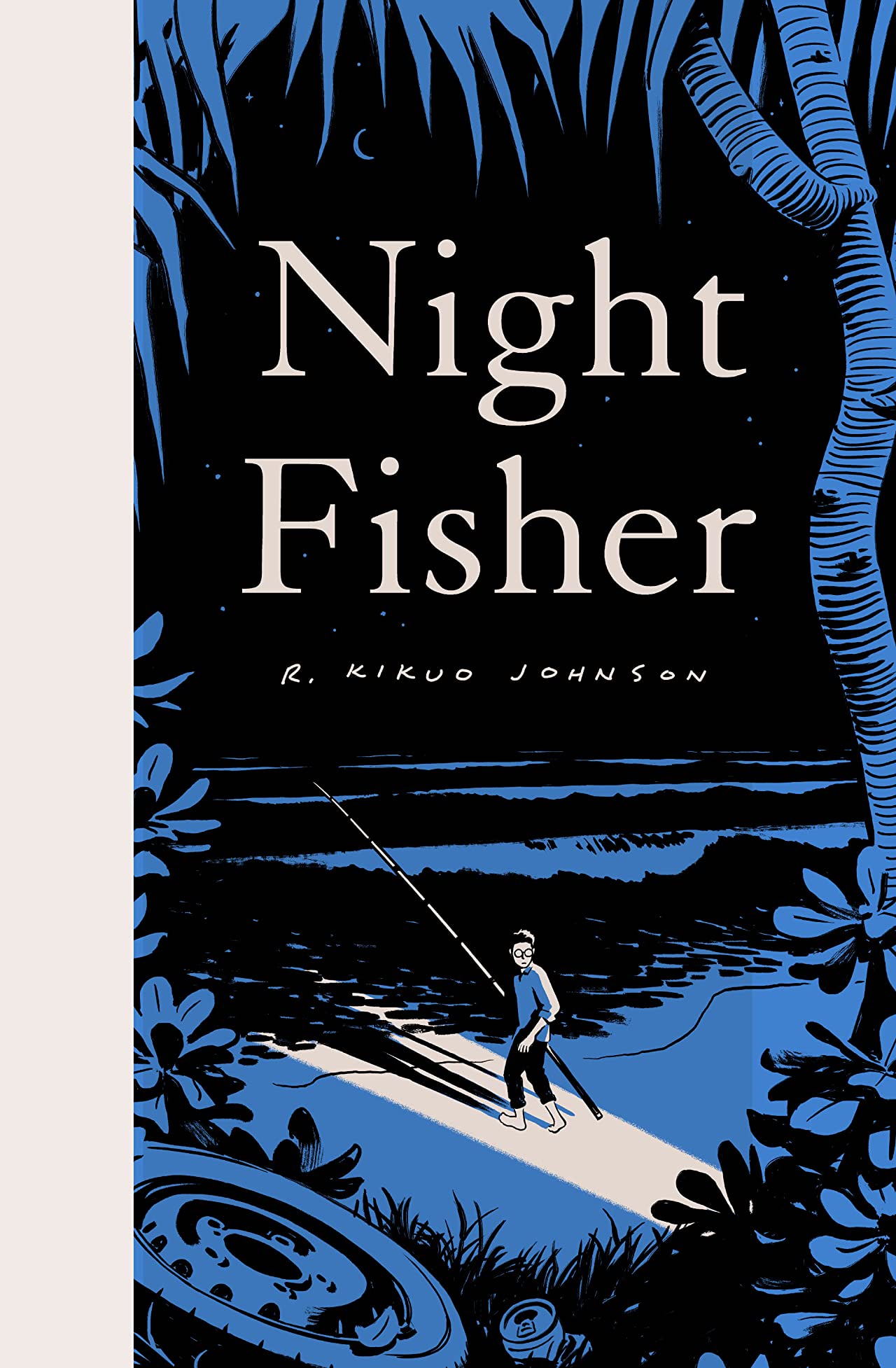


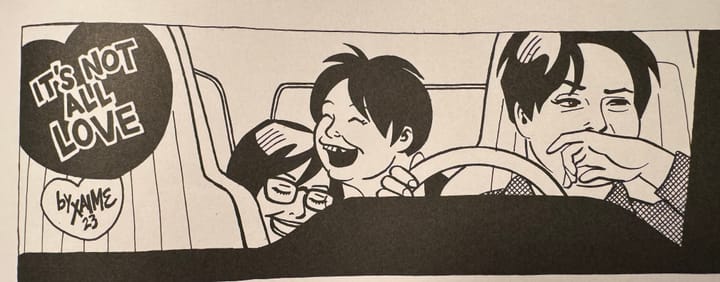
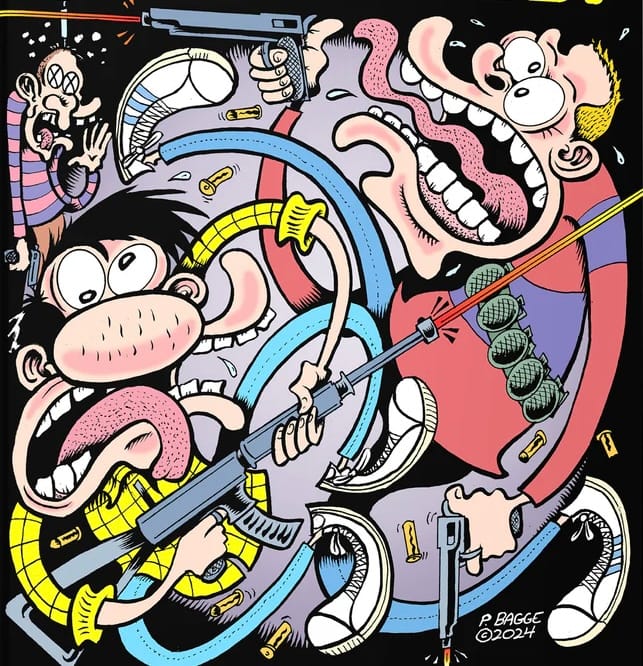
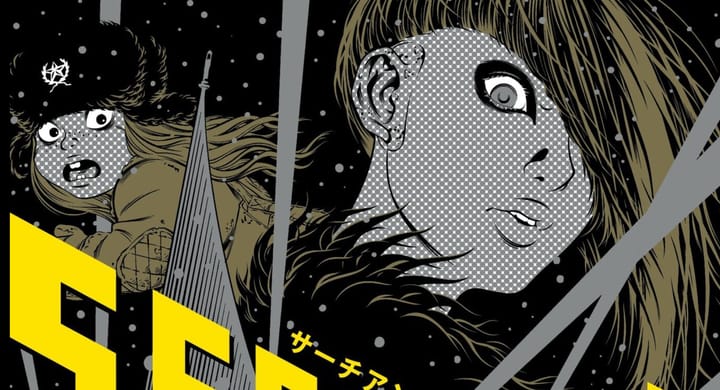
Comments ()